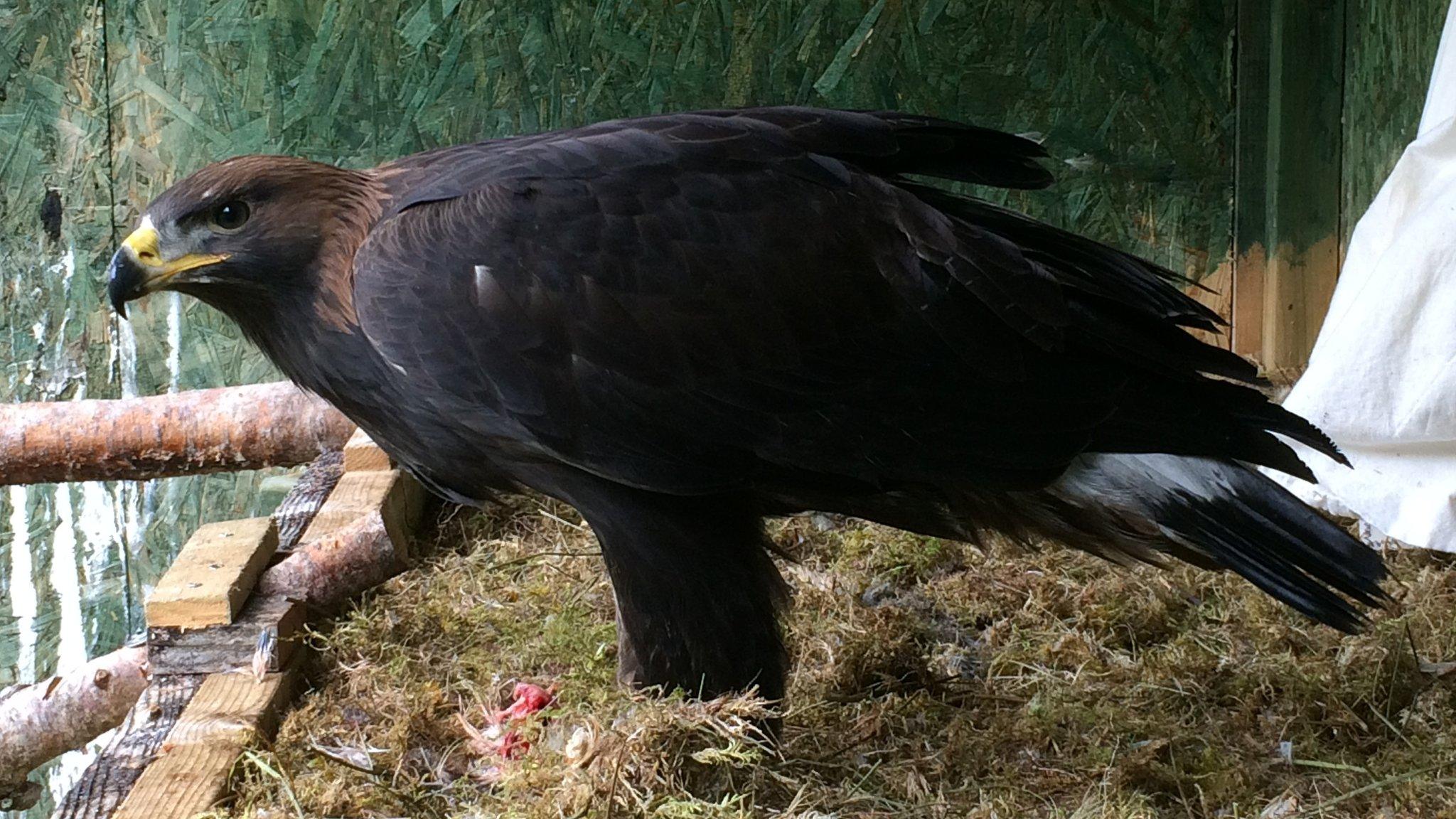Snowdonia golden eagle reintroduction plan launched
- Published
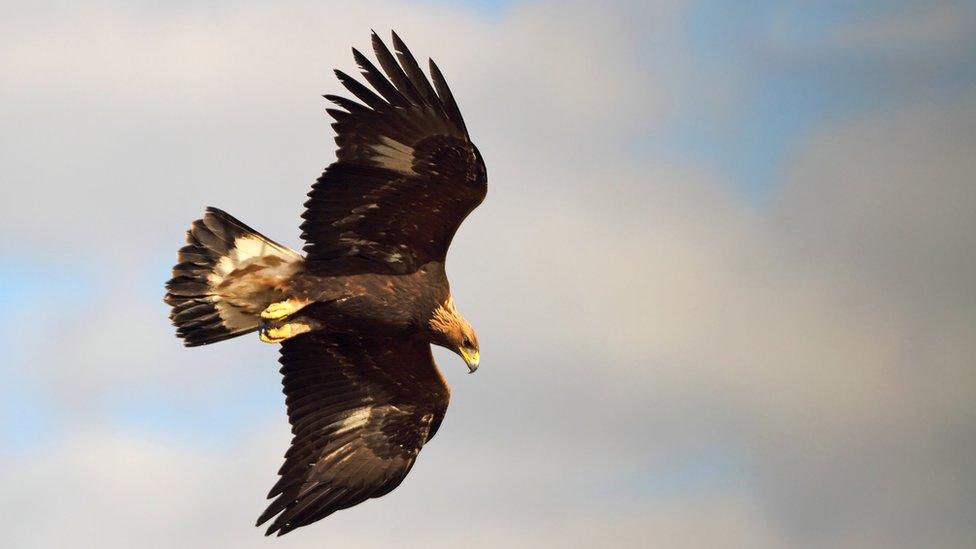
Golden eagles have a wingspan of up to 7ft (2.2m)
Golden eagles could be flying over Wales if plans to reintroduce them to the wild are successful.
Wilder Britain has launched a public consultation following a feasibility study done with Lancaster University.
Director Paul O'Donoghue hopes the "most exciting conservation project ever proposed" in Wales could see six to 10 breeding pairs in Snowdonia.
But sheep farmer Hedd Pugh, 61, said he was worried about the reintroduction of a "king of the predators".
Golden eagles have been all but extinct in Wales and England since 1850.
One captive bird, which went on to live in the Cambrian Mountains, was recently found dead by a walker.
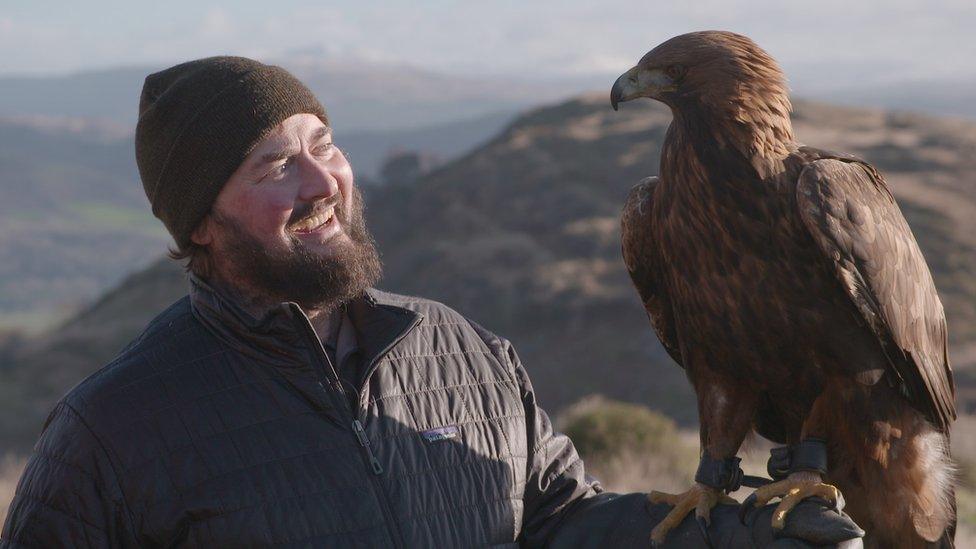
Paul O'Donoghue said the plan would be a big draw for ecotourists
In 2019, Cardiff University researchers said Wales was home to "large expanses of potentially suitable eagle habitat" but reintroduction was not likely to happen "for some time".
The university's Eagle Reintroduction Wales (ERW) said such programmes were "usually a strict, highly-regulated, licensing process", external.
Natural Resources Wales said: "We are aware of interest in the reintroduction of golden eagles into Wales. Reintroducing golden eagles to Wales would need to be carried out under a licence issued by Natural Resources Wales.
"Our assessment of any application for a licence would need to carefully consider the effects of a reintroduction on existing wildlife and land use."
A reintroduction plan in Ireland saw chicks released in County Donegal between 2001 and 2012.
This resulted in the first successful rearing of a chick by an Irish-bred eagle in more than 100 years in 2018.
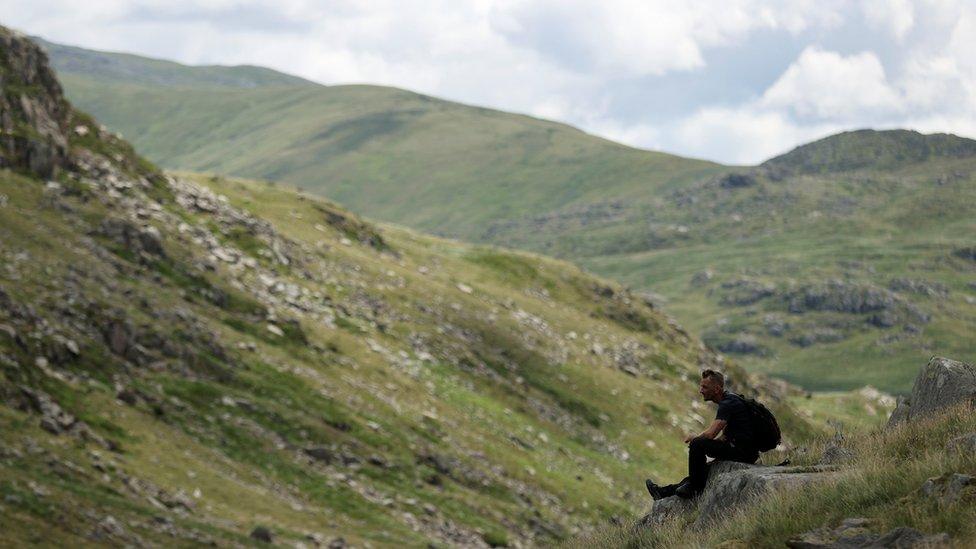
Snowdonia is already home to buzzards, peregrines, goshawks and black grouse, among other species
Dr O'Donoghue said the juvenile eagles would be brought in from Scandinavia and central Europe and hoped the first birds could be introduced in the summer of 2021 - although this depends on all licensing criteria being met and approved by NRW, which can take several months.
He said he was "extremely encouraged by what we have seen in Ireland" and hoped "to establish the same level of success and engagement in Wales".
He added: "We are delighted that the scientific feasibility work has confirmed how great Snowdonia would be for golden eagles.
"The sight of these majestic birds soaring over the mountain peaks, once seen, would never be forgotten."
Allow Facebook content?
This article contains content provided by Facebook. We ask for your permission before anything is loaded, as they may be using cookies and other technologies. You may want to read Meta’s Facebook cookie policy, external and privacy policy, external before accepting. To view this content choose ‘accept and continue’.

Mr Pugh, who has about 1,600 sheep on his farm in Dinas Mawddwy, Gwynedd, said: "I'm worried because the golden eagle is a predator and hasn't been here for nearly 200 years. I'm concerned not just for lambs - what about other birds as well?"
Golden eagles are capable of lifting up to 11lbs (5kg) and lambs weigh up to 10lbs (4.5kg) when they are born.
ERW said the staple diet of golden eagles in the UK was red grouse and mountain hares, but as Wales' populations of these was "near non-existent... we must question whether the golden eagle in Wales will adapt a much more generalist diet".
- Published17 August 2020
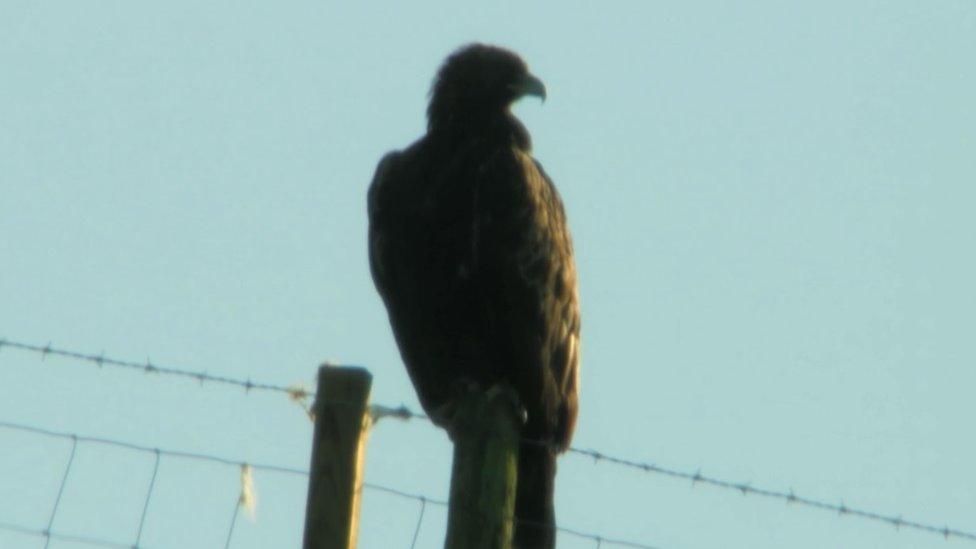
- Published13 August 2020
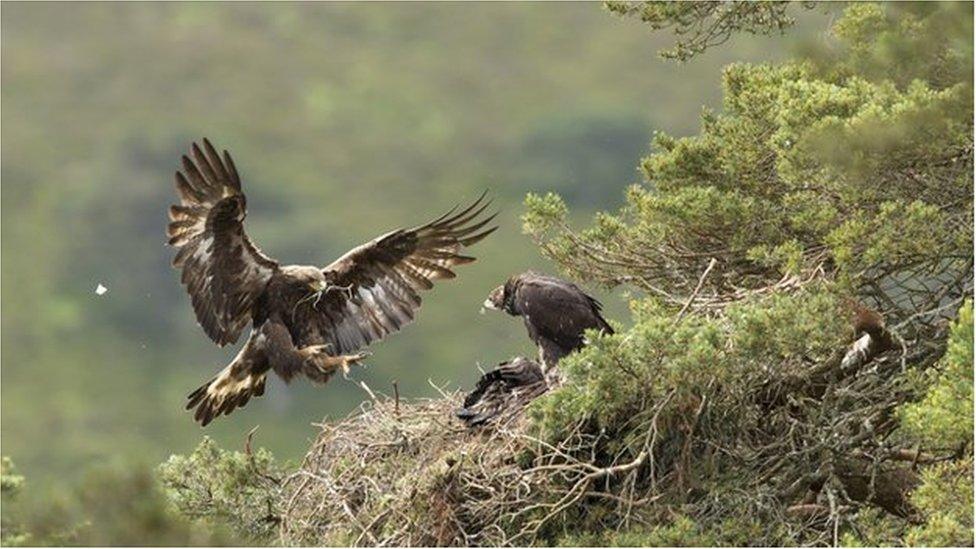
- Published31 August 2018
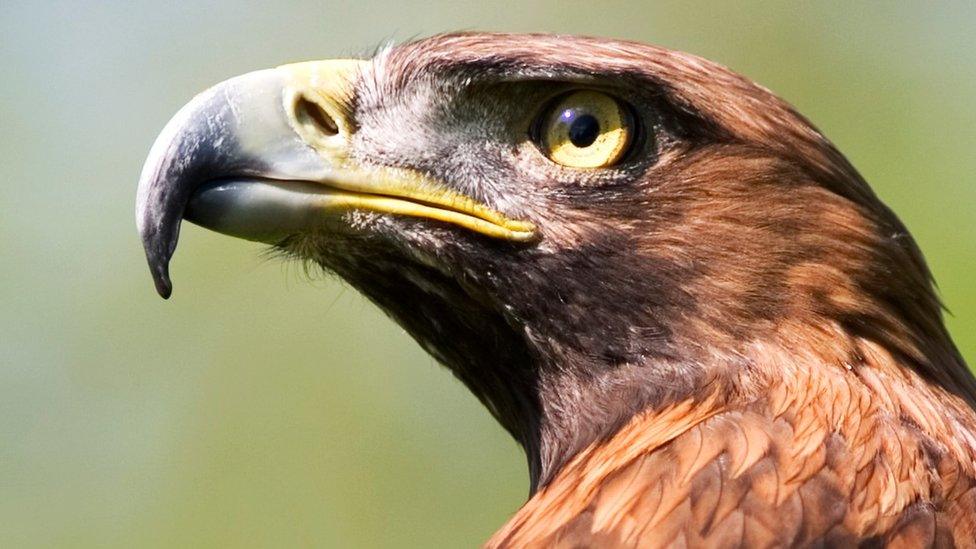
- Published8 August 2019
